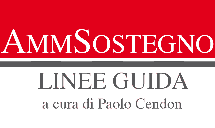- Redazione P&D - 30/12/2009
U.S. App., Circ. IX, 30 dicembre 2009, est. Thompsom, caso Birdsong c. Apple inc., - I-POD DIFETTOSI MA NON (ANCORA) DANNOSI – Riccarco RICCÒ
[…]
Warning: Permanent hearing loss may occur if earphones
or headphones are used at high
volume. You can adapt over time to a
higher volume of sound, which may
sound normal but can be damaging to
your hearing. Set your iPod’s volume to
a safe level before that happens. If you
experience ringing in your ears, reduce
the volume or discontinue use of your
iPod.
[…]
Waggoner, a California resident, then joined Birdsong in
filing a third amended complaint against Apple, alleging
claims for (1) breach of express warranty, Cal. Com. Code
§ 2313; (2) breach of the implied warranty of merchantability,
Cal. Com. Code § 2314; (3) breach of the implied warranty of
fitness for a particular purpose, Cal. Com. Code § 2315; (4)
violation of the California UCL, Cal. Bus. and Prof. Code
§§ 17220 et seq.; (5) violations of California’s Song-Beverly
Consumer Warranty Act, Cal. Civ. Code §§ 1790 et seq.; and
(6) violations of the federal Magnuson-Moss Warranty Act,
15 U.S.C. §§ 2301 et seq. Birdsong and Waggoner purported
to represent a nationwide class of iPod purchasers.
[…]
The plaintiffs argue the district court erred in determining
that the third amended complaint failed to sufficiently plead
an implied warranty claim. They alleged that the iPod (1)
comes with “stock ear buds . . . designed to be placed deep
into the ear canal rather than over the ears, which increases
the danger of hearing damage,” (2) lacks “noise isolating or
cancelling properties,” and (3) lacks any volume meter that
will inform users they are listening at dangerous levels.
The plaintiffs contend the district court failed to take their
factual allegations as true, and instead made its own counterfindings
that any dangers of hearing loss were “obvious” and
“avoidable.” The district court also determined the danger of
hearing loss did not exist unless the consumer decided to use
the iPod “in an extreme way.”
[2] The district court did not err.
[…]
statements suggest only that users have the option of using an
iPod in a risky manner, not that the product lacks any minimum
level of quality. See Am. Suzuki, 37 Cal. App. 4th at
1296.
[…]
[3] In the present case, the plaintiffs make no allegations of
any history of malfunction, but merely suggest possible
changes to the iPod which they believe would make the product
safer: (1) earbuds with noise-reduction features; (2) volume
control software; (3) more and different warnings printed
onto the actual iPod; and (4) a digital meter to display the output
volume in decibels. The plaintiffs fail to allege, however,
how the absence of their suggested changes caused any user
an injury. The plaintiffs do not allege the iPods failed to do
anything they were designed to do nor do they allege that
they, or any others, have suffered or are substantially certain
to suffer inevitable hearing loss or other injury from iPod use.
[…]
[4] California’s UCL prohibits unfair competition by means
of any unlawful, unfair or fraudulent business practice.
… to plead a UCL claim, the plaintiffs must show, consistent
with Article III, that they suffered a distinct and palpable
injury as a result of the alleged unlawful or unfair conduct.
[…]
The plaintiffs do not claim that they suffered or imminently
will suffer hearing loss from their iPod use. The plaintiffs do
not even claim that they used their iPods in a way that
exposed them to the alleged risk of hearing loss.
[…]
[6] Although the plaintiffs allege that Apple has sold more
than 100 million iPods, they do not claim that they, or anyone
else, have suffered or are substantially certain to suffer hearing
loss from using an iPod. As discussed above, as a result
of this omission, the plaintiffs fail to state an implied warranty
claim, and they have no standing to assert a UCL claim. The
plaintiffs simply do not plead facts showing that hearing loss
from iPod use is actual or imminent, as required. Buckland,
155 Cal. App. 4th at 814. To the contrary, the plaintiffs’ third
amended complaint reveals the conjectural and hypothetical
nature of the alleged injury as the plaintiffs merely assert that
some iPods have the “capability” of producing unsafe levels
of sound and that consumers “may” listen to their iPods at
unsafe levels combined with an “ability” to listen for long
periods of time.
The plaintiffs claim that the iPod’s inherent risk of hearing
loss has reduced the value of their iPods and deprived them
of the full benefit of their bargain because they cannot “safely”
listen to music. The plaintiffs do not contend in this appeal
that such alleged economic harm satisfies the injury in fact
requirement. Instead, the plaintiffs contend this alleged loss
satisfies the second part of the UCL’s standing test—that they
lost money or property as a result of Apple’s unfair acts. Cal.
Bus. & Prof. Code § 17204.
[7] The plaintiffs’ alleged economic harm centers on their
claim that the iPod has a defect (an inherent risk of hearing
loss), which caused their iPods to be worth less than what
they paid for them. But the plaintiffs have failed to allege a
cognizable defect under any of their asserted claims. Further,
the alleged loss in value does not constitute a distinct and palpable
injury that is actual or imminent because it rests on a hypothetical risk of hearing loss to other consumers who may
or may not choose to use their iPods in a risky manner.
AFFIRMED.



